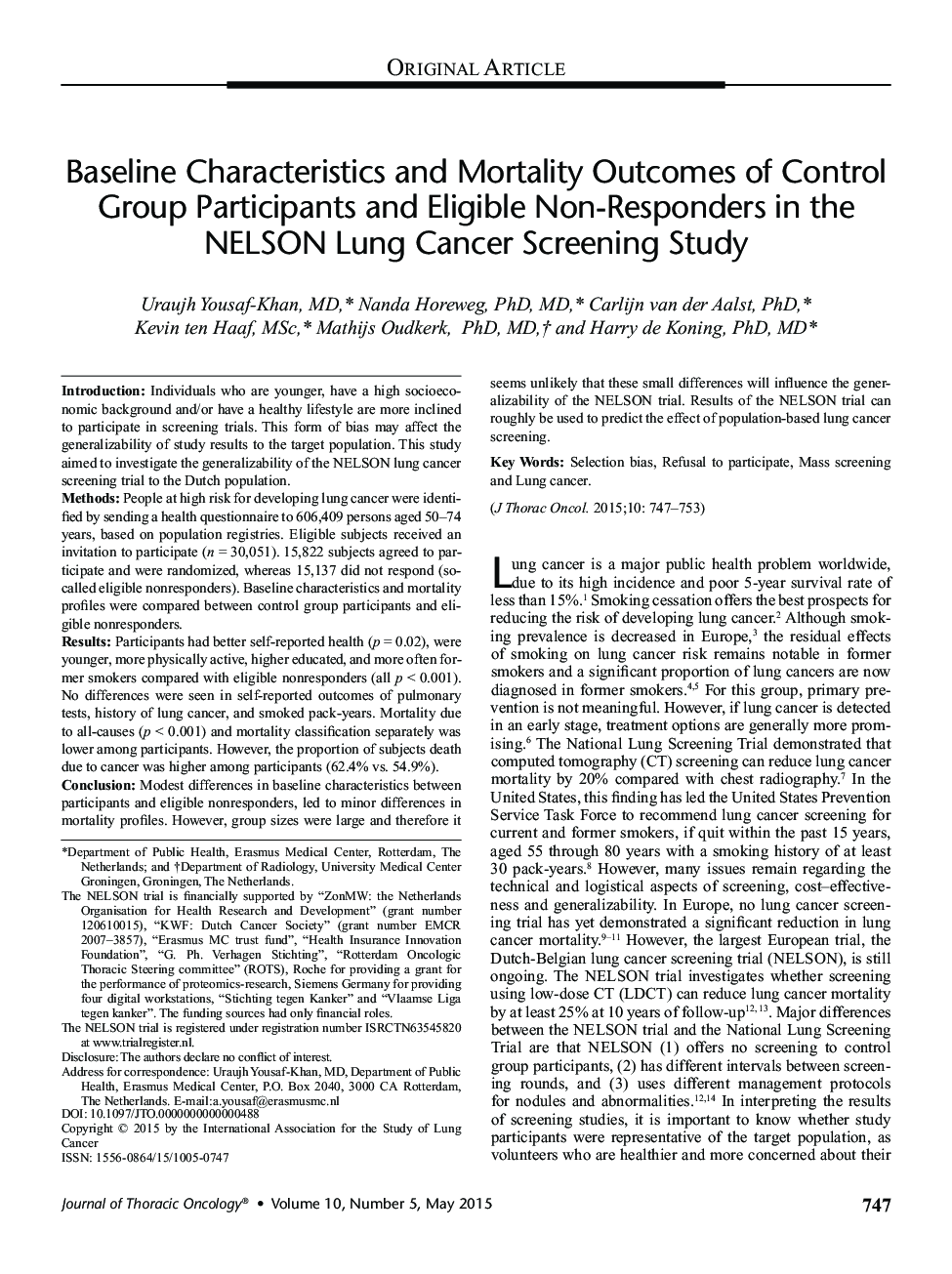| Article ID | Journal | Published Year | Pages | File Type |
|---|---|---|---|---|
| 3989615 | Journal of Thoracic Oncology | 2015 | 7 Pages |
IntroductionIndividuals who are younger, have a high socioeconomic background and/or have a healthy lifestyle are more inclined to participate in screening trials. This form of bias may affect the generalizability of study results to the target population. This study aimed to investigate the generalizability of the NELSON lung cancer screening trial to the Dutch population.MethodsPeople at high risk for developing lung cancer were identified by sending a health questionnaire to 606,409 persons aged 50–74 years, based on population registries. Eligible subjects received an invitation to participate (n = 30,051). 15,822 subjects agreed to participate and were randomized, whereas 15,137 did not respond (so-called eligible nonresponders). Baseline characteristics and mortality profiles were compared between control group participants and eligible nonresponders.ResultsParticipants had better self-reported health (p = 0.02), were younger, more physically active, higher educated, and more often former smokers compared with eligible nonresponders (all p < 0.001). No differences were seen in self-reported outcomes of pulmonary tests, history of lung cancer, and smoked pack-years. Mortality due to all-causes (p < 0.001) and mortality classification separately was lower among participants. However, the proportion of subjects death due to cancer was higher among participants (62.4% vs. 54.9%).ConclusionModest differences in baseline characteristics between participants and eligible nonresponders, led to minor differences in mortality profiles. However, group sizes were large and therefore it seems unlikely that these small differences will influence the generalizability of the NELSON trial. Results of the NELSON trial can roughly be used to predict the effect of population-based lung cancer screening.
